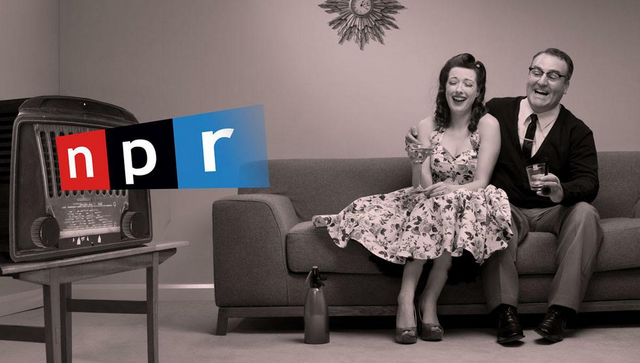
https://www.theamericanconservative.com/dreher/joe-rogan-world-npr-world-one-country-two-nations
I don't know Rod Dreher's writing, and I don't recall ever having seen his name before today, but I was intrigued by this piece, which I discovered at RealClearPolitics.
Partly what grabbed me is his opening about NPR. I used to be an avid NPR listener, but that's dropped off in recent years. As I drove across the country earlier this month, I listened to hours and hours of NPR, until I could readily dissect what I consider to be its shortcomings:
Many of their national reporters sound alike: no discernible regional accents; slightly ironic, smiley delivery; liberal or progressive assumptions behind the questions they ask and the statements they make. No one I heard discernibly sounded like they're from the South or the Midwest or New England. (Even the late Cokie Roberts sounded more like DC than her native Looosiana.) I would be surprised if any of them listen to country-western music, smoke cigarettes, question whether diversity is a virtue, or voted for Trump. By and large they sound like upper middle class urban professionals who, if they have yard signs at all, theirs read "Black Lives Matter." It struck me as a homogenous group of "on-air personalities." Nina Tottenberg, as it well known, was a long-time personal friend of the late Notorious RBG. How many NPR correspondents do you imagine are personal friends of Clarence Thomas? It should be renamed National Progressive Radio. They all sound progressive.
Still, NPR does great radio shows! Well worth listening to. It's just that, to me at least, NPR's political and cultural bias is front and center all the time. But because it is never acknowledged, it's as if NPR and its loyal listener base believe that there is no bias and they just tell it like it is. That just ain't so.
Here's how Rod Dreher starts off:
"Yesterday when I drove up to the country to visit my mother, I listened to NPR until I couldn’t take it anymore. There was a story about black Mormons. Normally I would have found that compelling, given my interest in religion. The Mormon religion used to be formally racist, but changed its teaching. What is it like to live as a black Mormon? That’s a story that interests me. Or normally would, but I swear, I turned off the radio. Why?"
"It had nothing to do with the black Mormons. It had to do with NPR. I thought: they’re only interested in Mormons so they can find some new way to talk about American racism."
"It feels like every time I get in the car and turn on the radio, I don’t have to wait long before I hear a story that highlights in some new way what a racist country America is, or how hard illegal immigrants have it in America, or how put-upon sexual minorities are, and so forth. I don’t know if NPR’s liberalism has always been like this, or if it has gotten worse — or if I have simply become thin-skinned about these issues. I have always known NPR was liberal, but that didn’t stop me from being a big fan, and even a contributing member. I feel that my NPR — the NPR that I cherished, even though it was liberal and I am conservative — has gone away, and I don’t know why. I used to love listening to it in the car, and not conservative talk radio, because I don’t want to have a voice on the radio rubbing my nose into some political narrative. NPR used to stand out because it proposed new ways of seeing the world, or at least ways that seemed new to me as a conservative. Now listening to NPR is giving oneself over to hosts who seek to impose a worldview that constantly says, about people who don’t fit the progressive narrative, that you aren’t worthy of our consideration or attention. That you are what’s wrong with America...."